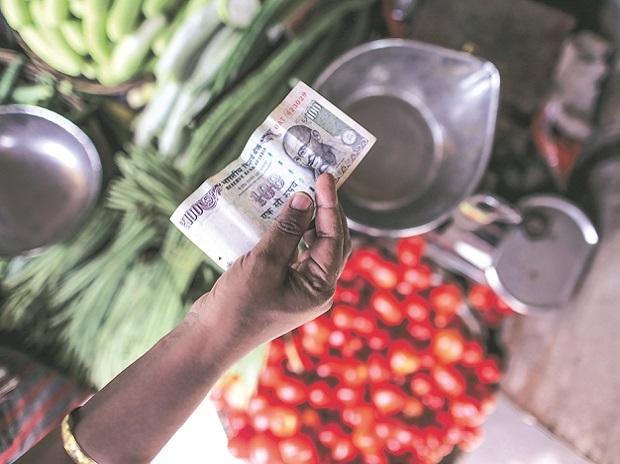
WPI inflation rises 0.16% in Aug as manufactured items turn costlier
A modest decline in food inflation in August was driven by cereals, pulses, vegetables and milk costing less
by Subhayan ChakrabortyWholesale inflation increased 0.16 per cent in August, turning positive after four months of deflation due to rising prices of manufactured products. The overall rate of deflation in the Wholesale Price Index (WPI) had consistently fallen since June, when it reached a 4.5-year high of 3.37 per cent.
Manufactured products witnessed an inflation of 1.27 per cent--a 15-month high, government data released on Monday showed. "The WPI surprised with a turnaround to a YoY inflation of 0.2% in August 2020 from the disinflation of 0.6% in July 2020, with the sequential hardening driven by core items and commodities, even as food inflation cooled marginally, offering a modicum of relief," said Aditi Nayar, Principal economist at ICRA.
Food inflation rose by 3.84 per cent--lower than July's 4.08 per cent but kept steady after months of volatility. The modest decline in food inflation in August was driven by cereals, pulses, vegetables and milk costing less. Among those seeing inflation, potato prices continued to soar. Prices of pulses also rose by 9.9 per cent, slightly slower than the 10.9 per cent inflation in the previous month.
With the sharp rise in vegetable prices in early September, the easing of food inflation witnessed in August may reverse. The favourable base effect may subsequently suppress food inflation in Q3 of FY2021, said Nayar.
Manufacturing resurgence
The pick up in prices was mostly led by manufactured products witnessing inflation of 1.27 per cent, which is a 15-month high. A persistent stagnation in manufacturing inflation, which began more than a year ago, had continued to pull down the Wholesale Price Index- (WPI)-based inflation till now. Inflation had stood at 0.5 per cent in the previous month.
As of August, the segment, which has a combined weight of 65 per cent in the index, saw prices rise at a faster clip. Among the sub-segment, prices of manufactured food products rose the fastest at 4.68 per cent as vegetable oils and animal oils, fats saw a sudden uptick in their prices. Seven of the 14 components within the manufactured products segment have recorded a contraction in the latest month.
Experts said the sudden inflationary pattern recorded in the latest month indicates purchasing power of manufacturers is again growing.
Despite witnessing continuing deflation, fuel and power prices saw the rate of deflation go down for the third-straight month to 9.68 per cent, lower than the 9.84 per cent in the previous month. Over than month, liquefied petroleum gas (LPG) also turned inflationary, rising by 6.15 per cent.
"Going forward, we expect core inflation to harden somewhat to an average 1.5 per cent in the second-half of FY2021. The WPI may move in and out of disinflation in the next few months, partly driven by base effects as well as volatility in commodity and food prices," Nayar predicted. She said the WPI is expected to record an average disinflation of 0.5 per cent for the entire year of FY2021.